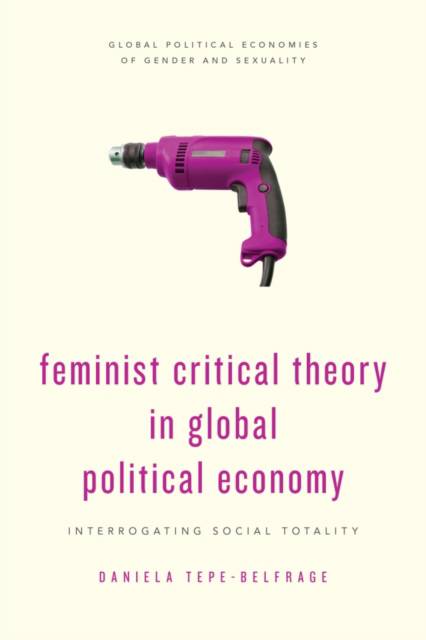
- Afhalen na 1 uur in een winkel met voorraad
- Gratis thuislevering in België vanaf € 30
- Ruim aanbod met 7 miljoen producten
- Afhalen na 1 uur in een winkel met voorraad
- Gratis thuislevering in België vanaf € 30
- Ruim aanbod met 7 miljoen producten
Zoeken
Omschrijving
This book highlights the benefits of engaging with Critical Theory for Feminist research and provides a framework for a Feminist Critical Theory
Specificaties
Betrokkenen
- Auteur(s):
- Uitgeverij:
Inhoud
- Aantal bladzijden:
- 192
- Reeks:
Eigenschappen
- Productcode (EAN):
- 9781783484225
- Verschijningsdatum:
- 1/06/1999
- Uitvoering:
- Hardcover
- Afmetingen:
- 152 mm x 229 mm

Alleen bij Standaard Boekhandel
+ 237 punten op je klantenkaart van Standaard Boekhandel
Beoordelingen
We publiceren alleen reviews die voldoen aan de voorwaarden voor reviews. Bekijk onze voorwaarden voor reviews.







